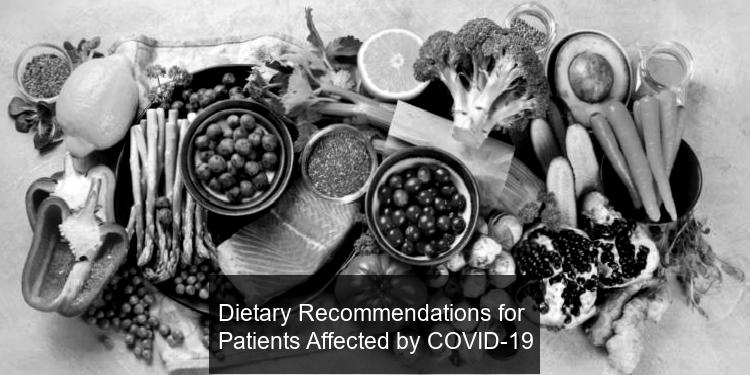Dietary Recommendations for Patients Affected by COVID-19
Coronavirus (COVID-19) is a disease caused by a new strain of coronavirus severe acute respiratory syndrome (SARS-CoV-2). May always cause cough, fever, loss/change in sense of smell or taste.
The coronavirus can cause more severe symptoms in people with compromised immune systems, the elderly, and those with long-term conditions such as diabetes, cancer, chronic lung disease, and cardiovascular disease.
Proper nutrition and hydration are valuable in striving with this disease and helping to manage symptoms. A stable diet can optimize immune system function, improve metabolism, and help prevent the development of chronic symptoms associated with COVID-19. To provide the body with the necessary vitamins, minerals, proteins and antioxidants, fresh and from unprocessed foods It is recommended to follow a diet consisting of daily. A true diet will ensure that the body is in a suitable state to defeat the virus!
A few changes that can help make an adequate flourish in your daily routine include:
Diet rich in protein
Adequate protein intake is necessary to prevent muscle loss and maintain metabolic functions. Muscle wasting can cause weakness, fatigue, and the inability to perform daily activities. Protein deficiency is also associated with impaired immune system function and can worsen symptoms and prolong recovery time.
Try to include a serving of protein-rich foods at every meal. Vegetarians can include 2-3 servings a day of legumes, soy, milk and dairy products, and nuts. Non-vegetarians can include eggs in their diet along with lean meats such as chicken and fish.
healthy fats
Cut down on fat intake and choose cooking techniques that require less or no fat, such as steaming, grilling, or sautéing, rather than frying foods. Choose foods that contain healthy sources of unsaturated fat, such as fish and nuts. Avoid including trans fats in your meals as much as possible.
Plenty of fruits and vegetables
Vitamins, minerals and antioxidants found in colorful fruits and vegetables facilitate a rapid beautification. Try to include at least 5-6 servings of fruit and vegetables in the daily meal plan. You can add fruit to your milkshakes or smoothies, and consume seasonal vegetables in forms such as cooked, sauteed, steamed or boiled.
Probiotics
Recent research shows that probiotics can help boost the immune system. The healthy bacteria found in probiotics help the gut and intestinal tract fight disease-causing microbes. Yogurt, kefir, and pickles are loaded with probiotics.
Probiotics support the growth of good bacteria stored in the gut, which play a valuable role in balancing your body’s proper bacteria. These healthy bacteria help balance your digestion, immunity and metabolism.
Vitamin C
Vitamin C protects you from infection by stimulating the formation of antibodies and strengthening immunity. As an antioxidant, vitamin C fights free radicals in the body. Add more vitamin C to your diet, such as citrus fruits such as oranges, grapefruit and tangerines, or peppers, strawberries, tomatoes, broccoli and kiwis.
Zinc-rich foods
Sufficient zinc is very valuable for the development and function of the immune system and can help heal wounds. Zinc is found in lean meats, poultry, seafood, dairy, whole grain artifacts, beans, pumpkin seeds, and nuts.
Selenium
Eggs contain selenium, a powerful antioxidant that plays a key role in cell health. Other sources include marine artifacts, pumpkin seeds, grains, and dairy artifacts.

